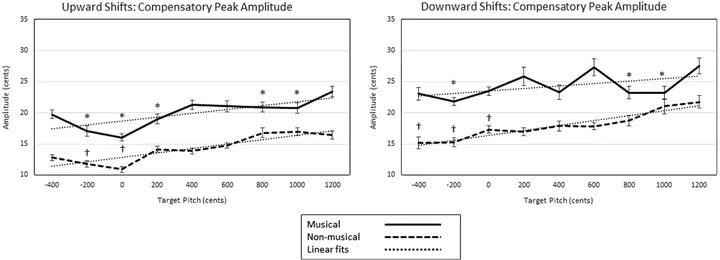
Abstract
The control of vocal pitch plays a central role in speech and singing, where accurate tonal production relies on modulating F0 production. Previous research has shown that vocal pitch is modulated in response to artificial pitch perturbations during ongoing vocalization (i.e., the pitch-shift response) with response characteristics differing between musicians and non-musicians. However, little is known about the behavior of these responses in the higher portion of a speaker’s vocal range for amateur musicians or non-musicians. The present study addresses whether pitch control changes as target pitch is systematically increased and whether this variation is affected by musicianship. We predicted that as F0 moves away from comfortable speaking level, pitch-shift response peak amplitude would increase and peak latency would decrease, while participants with musical experience would have lower amplitude responses than those without experience. Results showed that peak amplitude linearly increased as F0 was raised, and that peak latency similarly decreased but with more variability. However, musical participants had larger pitch-shift response amplitudes and longer peak latency times than non-musical participants, which is an unanticipated finding for persons with musical training. These patterns suggest that pitch control can be manipulated by vocal tasks that vary F0 while still being subject to strong modulation by musical background.